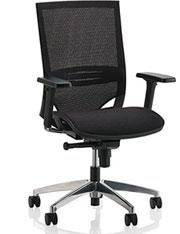Editorial by Dick Resch
American manufacturers can – and need to – do more to fight climate change by making their production processes have a lighter environmental footprint.
Manufacturers bear significant responsibility for global warming. The Industrial Revolution is now widely viewed as a turning point in our planet’s history, causing carbon emissions to rise by one-third. More recently, rapid development of manufacturing industries in emerging economies like China, India, and Brazil has proven to be a key driver of emissions.
The United Nations recently released a 2,000-plus-page report on climate change with a straightforward conclusion – global temperatures are rising, and human activity is the cause.
The report’s 259 authors warn that catastrophic heat waves, droughts, and floods will grow more common unless governments take steps to limit greenhouse gas emissions. But there are serious political limits to what governments can do, especially with the global economy flagging.
Fortunately, some private firms are picking up the slack – even notorious emitters like manufacturers. But if we’re to solve the climate change problem, more businesses worldwide will need to join them — and voluntarily reduce their own carbon emissions.
Make no mistake, the time for action is now. In May, scientists at the National Oceanic and Atmospheric Administration reported that the concentration of carbon in the earth’s atmosphere had reached record-high levels.
With special interests like the fossil fuel and chemical industries making it extremely difficult for governments to take action on the level that’s needed, businesses in other industries need to counteract that pressure. We need to let governments know that our businesses depend on a future without constant floods, droughts, wildfires and superstorms.
Indeed, many private firms aren’t waiting for governments to take the lead on emissions reduction. As the Center for American Progress points out in a new report, the manufacturing sector today "is actually vital to the process of building a
low-carbon economy."
Consider Unilever, one of the world’s largest consumer goods companies. Between 2008 and 2012, the firm reduced carbon emissions from manufacturing by 838,000 tons. It plans to open seven new eco-efficient factories this year.
One of the many actions Hewlett Packard has taken is to reduce the carbon footprint of the plastic in its printer cartridges. By using a closed loop recycling process, they use 33% less plastic.
At my company, KI Furniture, we dramatically cut the amount of waste we produce. Between 2011 and 2012, we diverted more than 500,000 pounds of waste from landfills and reduced our materials use by more than 6%.
One of KI’s chairs, all made using Design for Sustainability processes:

To us, sustainability isn’t just about "going green." It’s a fundamental way of doing business – one that conserves natural resources and reduces waste, consumption and operating costs.
Innovative materials are also helping manufacturers shrink their carbon footprints in ways that weren’t possible just a few years ago.
For instance, Irvine, California-based start-up Newlight Technologies has developed AirCarbon – a material derived from recycled greenhouse gases. The manufacturing process takes methane and carbon dioxide out of the atmosphere and transforms it into durable plastic. The entire process is carbon negative – it actually removes carbon from the atmosphere.
This trend toward environmental processes is growing. A recent report from HSBC finds that 84% of the world’s largest companies have emissions targets. This might help explain why carbon emissions of 42 industrialized nations actually fell in 2011.
But the only way such efforts will have a significant effect on reversing climate change is if more businesses join in the cause. Public policy alone won’t be enough. It’s the responsibility of carbon-emitting enterprises to do their part in preserving our planet.
++++
Dick Resch is CEO of KI Furniture.
